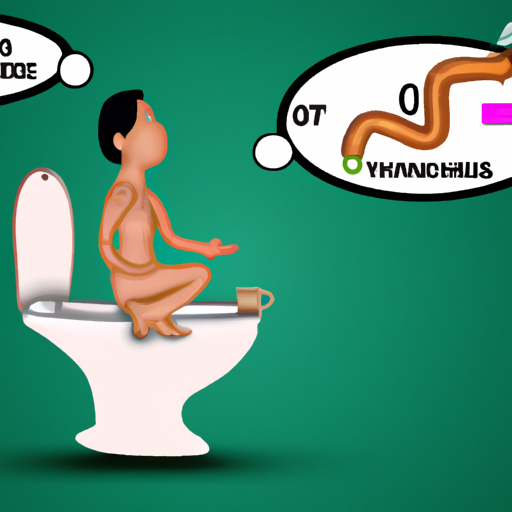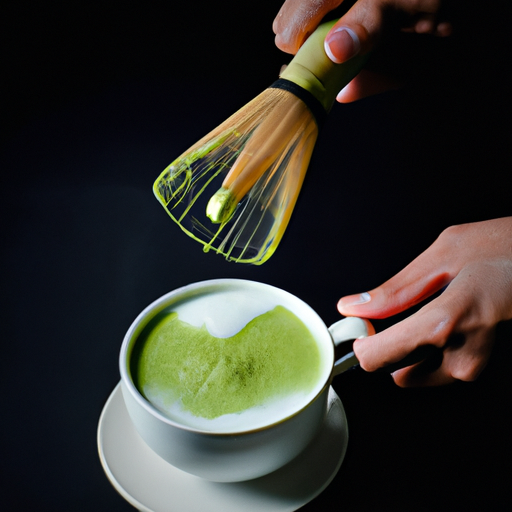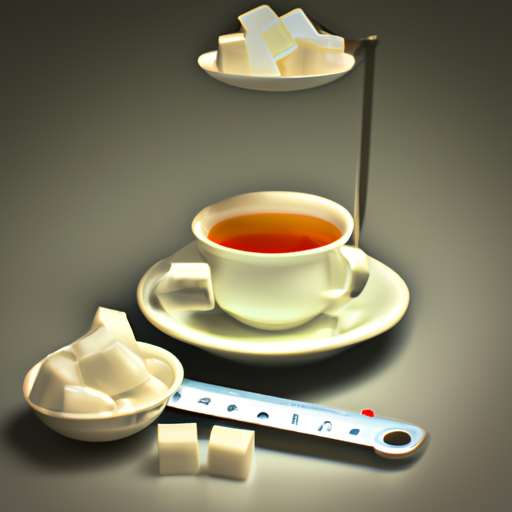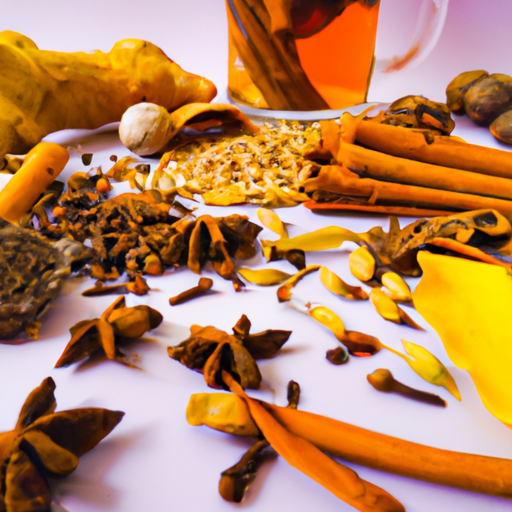As someone who enjoys chai tea, I’ve frequently noticed that it appears to consistently cause me to defecate. While it’s not the most elegant subject, it’s an issue that numerous individuals encounter after consuming this tasty drink.
So, I decided to do some research and find out what causes this effect. After digging through various studies and articles, I’ve learned that there are several factors at play when it comes to the digestive effects of chai tea. From the ingredients in the tea itself to individual differences in digestion, there are many things that can contribute to why you might feel the need to visit the bathroom after sipping on a cup of chai.
In this article, we’ll explore these different factors and help you understand why chai tea might be making you poop and what you can do about it if you’re experiencing any discomfort or digestive issues.
Key Takeaways
- Chai tea contains natural ingredients that stimulate digestion and promote bowel movement, making it a possible cause of increased bowel movements after consumption.
- The spices in chai tea, such as ginger, cinnamon, cardamom, and cloves, can benefit the gut microbiome and have traditionally been used as digestive aids.
- Dehydration can make stool harder and drier, making it more difficult to pass through the intestines; exercise and hydration can help improve digestion.
- While increased bowel movements after consuming caffeine or spicy foods is normal, persistent diarrhea, blood in stools, or abdominal pain may indicate a serious underlying condition that requires medical attention.
The Ingredients in Chai Tea
You’ll be pleased to know that the reason chai tea can have a laxative effect on you is due to the natural ingredients it contains, such as ginger and cinnamon. Chai tea has its origins in India and is made by combining black tea with various spices like ginger, cinnamon, cardamom, cloves, and black pepper. These spices are what give chai tea its distinct aroma and taste.
Chai tea variations are available in different forms today. Some contain milk or cream while others have added sugar or honey for sweetness. Despite these differences, most chai teas still contain the same core ingredients that make them effective at promoting bowel movement.
Ginger is one of the main ingredients in chai tea that can stimulate digestion. It contains compounds called gingerols that increase contractions of the smooth muscle in your gut wall. Cinnamon also has similar effects on your digestive system by increasing blood flow to your intestines and aiding in nutrient absorption. With all these natural ingredients working together, it’s no wonder why drinking chai tea can help you poop easier.
Now let’s delve into the science behind digestion to understand how these ingredients work together to promote bowel movement without being too graphic about it!
The Science Behind Digestion
I find it fascinating to learn about the science behind digestion. The digestive system plays a crucial role in breaking down food and absorbing nutrients, allowing our bodies to function properly.
Enzymes are essential for this process, as they break down carbohydrates, proteins, and fats into smaller molecules that can be absorbed by the body.
As food moves through the body, it passes through various organs and undergoes different processes until it is ultimately eliminated as waste.
The Role of the Digestive System
The digestive system plays a crucial role in the effects that chai tea can have on your body. When we consume food or drink, our gut sends signals to our brain through the gut-brain connection. This communication pathway allows the brain to regulate digestion and other bodily functions. Therefore, when we drink chai tea, it can affect not only our stomach but also our brain.
However, stress can also impact digestion by activating the sympathetic nervous system and inhibiting digestive processes. In turn, this could potentially lead to bowel movements or diarrhea after consuming certain foods or drinks such as chai tea. Therefore, it’s important to understand how stress impacts our digestive system and take steps to manage stress levels for optimal digestion.
Speaking of which, enzymes play an essential role in breaking down food molecules during digestion…
The Importance of Enzymes
Imagine tiny little workers inside your body, breaking down the food you eat into smaller pieces so that your body can use it for energy and nourishment. These workers are called enzymes, and they play a crucial role in the digestive process. Enzymes are proteins that act as catalysts to speed up chemical reactions in the body. Without them, our bodies would not be able to break down food efficiently.
However, some people may have an enzyme deficiency which can lead to digestive issues such as bloating, gas, and constipation. In these cases, taking digestive enzyme supplements may help improve digestion and alleviate symptoms. It is important to consult with a healthcare professional before starting any supplement regimen to ensure safety and effectiveness.
As we move on to discussing how food moves through the body, it is important to understand how enzymes play a vital role in this process as well.
How Food Moves Through the Body
Get ready to learn how the food you eat travels through your body in a fascinating journey! Once we chew and swallow our food, it’s propelled down the esophagus into the stomach. The stomach churns and mixes the food with digestive juices, breaking down proteins and carbohydrates.
After this initial phase of digestion, the food moves into the small intestine where enzymes from the pancreas and intestinal wall continue to break it down further for absorption. This movement of food throughout the digestive system is facilitated by peristalsis process – a series of involuntary muscle contractions that push food along.
Interestingly, there’s also a gut-brain connection that regulates this process. The enteric nervous system (sometimes called ‘the second brain’) can independently control peristalsis, but it also receives input from the central nervous system. This means that stress or anxiety can affect how quickly or slowly food moves through our digestive system.
As we move on to discussing chai tea and its effect on digestive health, it’s important to keep in mind how intricate and interconnected our bodies are in processing what we consume.
Chai Tea and Digestive Health
You may notice that drinking chai tea can help your digestion, as the spices in the tea stimulate bowel movements and promote healthy gut function. Chai tea contains a variety of spices such as ginger, cinnamon, cardamom, and cloves which have been shown to benefit the gut microbiome. These spices have anti-inflammatory properties that help to reduce inflammation in the gut, allowing for better nutrient absorption.
Research has also shown that chai tea can aid in relieving constipation. A study found that individuals who consumed a blend of fennel seed and black tea experienced an increase in bowel movements compared to those who did not consume the blend. Fennel seed is commonly used in chai tea blends and has been traditionally used as a digestive aid due to its ability to reduce bloating and gas.
As we will discuss in the next section about caffeine and bowel movements, it is important to note that while chai tea can promote healthy digestion, caffeine also plays a role in bowel movements. So if you are sensitive to caffeine or experience discomfort after consuming caffeinated beverages, it may be best to limit your intake of chai tea or opt for a decaffeinated version instead.
Caffeine and Bowel Movements
Although commonly associated with promoting bowel movements, caffeine can actually have varying effects on individuals’ digestive systems. For some people, caffeine can stimulate the bowels and cause more frequent bowel movements. This is because caffeine is a natural stimulant that speeds up the movement of food through the digestive system. However, for others, caffeine can have the opposite effect and cause constipation.
One factor that may influence how caffeine affects your digestion is dehydration. Caffeine is a diuretic, which means it increases urine production and can lead to dehydration if you don’t drink enough fluids. Dehydration can make stool harder and drier, making it more difficult to pass through your intestines. Therefore, drinking plenty of water when consuming caffeinated beverages like chai tea may help prevent constipation.
Another factor that may affect how caffeine impacts your bowel movements is exercise. Exercise helps stimulate the muscles in your digestive tract, which can help move stool along more efficiently. Therefore, if you’re experiencing constipation after drinking chai tea or other caffeinated beverages, incorporating regular exercise into your routine could be helpful.
Transitioning into the subsequent section about spices and digestion: Now that we’ve discussed the potential effects of caffeine on bowel movements, let’s explore another aspect of chai tea that could impact digestion – its spices.
Spices and Digestion
I love drinking chai tea, especially when it’s cold outside. One of the things that makes this drink so special is the variety of spices used in its preparation.
These spices not only add a unique flavor but also provide digestive benefits like reducing inflammation and aiding in digestion. However, it’s worth noting that some people may experience potential side effects from consuming too much spice, such as heartburn or allergies.
Common Spices Used in Chai Tea
Who knew that the innocent-looking spices in your chai tea could be the culprits behind your sudden bathroom breaks? Chai tea is a popular beverage made with a blend of black tea and various spices, such as cinnamon, cardamom, ginger, cloves, and black pepper. While these spices are known for their health benefits and delicious flavor, they can also have drawbacks when it comes to digestive issues.
On one hand, many of the spices used in chai tea have been shown to aid digestion and alleviate gastrointestinal discomfort. For example, ginger has long been used as a natural remedy for nausea and vomiting. Cinnamon may help regulate blood sugar levels and improve insulin sensitivity. Cardamom has been found to possess anti-inflammatory properties that may reduce bloating and gas.
However, some people may be more sensitive to these spices than others, leading to diarrhea or other digestive problems. Additionally, if you pair chai tea with complementary spicy foods or drinks like curry or soda, this can worsen symptoms even more.
As we’ve seen above, there are both benefits and drawbacks associated with consuming the various spices commonly found in chai tea. However, next we will dive deeper into how these same spices might actually benefit our digestion overall!
The Digestive Benefits of Spices
Discover how adding spices to your meals can improve your digestion and leave you feeling more comfortable and energized throughout the day. Herbal remedies have been used for centuries to treat various ailments, including digestive issues.
The gut microbiome, which consists of trillions of bacteria in our gastrointestinal tract, plays a crucial role in maintaining our overall health and well-being. Spice blends like those found in chai tea can promote healthy digestion by supporting the growth of beneficial gut bacteria.
Cinnamon, one of the most common spices used in chai tea, has been shown to have anti-inflammatory properties that can reduce inflammation in the gut. Additionally, ginger has long been used in traditional medicine as a remedy for nausea and indigestion. Finally, cardamom has been known to help regulate bowel movements and relieve constipation.
By incorporating these spices into your diet through drinking chai tea or other means, you may experience improved digestion and fewer uncomfortable symptoms associated with digestive issues.
Moving on from herbal remedies that support healthy digestion, it’s important to note that some individuals may experience potential side effects when consuming certain spices.
Potential Side Effects of Spices
Spices can have potential side effects that should be taken into consideration before adding them to your diet. While they are known for their digestive benefits, consuming too much of certain spices can lead to uncomfortable symptoms such as diarrhea, nausea, and heartburn. Possible causes of these side effects may include the individual’s sensitivity to specific spices or overconsumption.
If you experience any discomfort after consuming a spice, there are treatment options available. Over-the-counter medications such as antacids and anti-diarrheal medications may provide relief. Prevention techniques and lifestyle changes may also help alleviate symptoms in the future. This includes avoiding trigger foods, drinking plenty of water, and eating smaller meals throughout the day instead of larger ones.
Transitioning into the subsequent section about ‘milk and digestion’, it is important to note that milk contains lactose which can also cause digestive discomfort in individuals who are lactose intolerant.
Milk and Digestion
When you consume milk, your digestive system may produce more gas and cause bowel movements, which could explain why drinking chai tea with milk makes you poop.
Milk contains lactose, a sugar that some people have difficulty digesting due to lactose intolerance. This can lead to symptoms such as bloating, gas, and diarrhea. However, not everyone who experiences these symptoms is lactose intolerant; other factors such as stress or certain medications can also affect digestion.
If you find that drinking chai tea with milk consistently makes you poop shortly after consuming it, you may want to consider dairy alternatives. Soy milk, almond milk, coconut milk, and oat milk are all popular options that are widely available in grocery stores. These substitutes do not contain lactose and may be easier for some people to digest.
It’s important to note that personal factors also play a role in how our bodies respond to certain foods and beverages. For example, some individuals may be more sensitive to the caffeine content in chai tea than others. Additionally, certain medications or medical conditions may affect how quickly our bodies process food and eliminate waste.
Taking note of these personal factors can help us better understand why we experience certain digestive symptoms after consuming specific foods or drinks.
Personal Factors that Affect Digestion
As someone who’s interested in maintaining good digestive health, I’ve found that a number of personal factors can significantly affect my digestion. These include age and the natural changes that occur in the digestive system over time, as well as medical conditions that can disrupt normal digestive processes.
Additionally, dietary habits play a key role in promoting or hindering optimal digestive health. By understanding these personal factors, I’m better equipped to make informed choices about my diet and lifestyle to support healthy digestion.
Age and Digestive Health
Although it may sound like an exaggeration, getting older can really wreak havoc on your digestive system and cause chai tea to make you poop.
As we age, our body undergoes several changes that affect our digestion. For instance, the production of digestive enzymes and gut bacteria decreases with age. This means that our body is less efficient at breaking down food and extracting nutrients from them.
Additionally, age-related changes in the muscles of the digestive tract can lead to constipation. The muscles become weaker, making it harder for food to move through the digestive tract smoothly.
These factors combined can cause chai tea or any other food item to trigger bowel movements more frequently in older individuals. However, it’s important to note that if this symptom becomes persistent or severe, it could be a sign of an underlying medical condition or digestive issue that needs further evaluation by a healthcare professional.
Medical Conditions and Digestive Issues
Medical conditions and digestive issues can greatly impact the way our body processes food, leading to discomfort and potential health complications. One common example is stress, which can cause a range of digestive symptoms such as bloating, abdominal pain, and diarrhea. This is because stress activates the sympathetic nervous system, which reduces blood flow to the digestive tract and slows down digestion. Additionally, stress can lead to changes in gut bacteria composition and increased intestinal permeability.
Another factor that can affect digestive health is medications. Certain medications like antibiotics or nonsteroidal anti-inflammatory drugs (NSAIDs) can disrupt the balance of gut bacteria or irritate the lining of the stomach and intestines. This may result in symptoms such as diarrhea, constipation, nausea, or heartburn. Other medications like antidepressants or opioids may also affect gastrointestinal motility and cause bowel irregularities.
It is important to be aware of these potential triggers for digestive issues in order to take steps towards maintaining good gut health. One crucial step is paying attention to our dietary habits and making conscious choices about what we eat.
Dietary Habits and Digestive Health
Eating a balanced diet rich in fiber, probiotics, and fermented foods can work wonders for our digestive system. Probiotic supplements have been shown to improve gut health by increasing the number of good bacteria in our intestines.
Meanwhile, consuming enough fiber helps keep our bowel movements regular and prevent constipation. Fermented foods like yogurt and kimchi also contain beneficial bacteria that aid digestion.
Hydration is another crucial factor for maintaining healthy digestion. Drinking plenty of water throughout the day helps soften stool and make it easier to pass. Additionally, incorporating regular exercise into your routine can help stimulate bowel movements and promote overall digestive health.
By following these simple dietary habits and lifestyle changes, you may find yourself feeling more comfortable after enjoying a cup of chai tea.
When it comes to digestive issues, it’s important to know when to be concerned.
When to Be Concerned
Hey, if you start noticing any drastic changes in your bowel movements after drinking chai tea, it’s important to know when you should be concerned.
While it’s normal to experience some degree of increased bowel movements after consuming caffeine or spicy foods, there are certain warning signs that you should be aware of. If you notice blood in your stools, persistent diarrhea or abdominal pain, it may indicate a more serious underlying condition such as inflammatory bowel disease or colon cancer. In such cases, it’s important to seek medical attention immediately.
Possible complications associated with untreated digestive issues can range from mild discomfort and inconvenience to life-threatening conditions. Chronic diarrhea can lead to dehydration and malnutrition while persistent constipation can cause hemorrhoids and anal fissures. Moreover, untreated inflammatory bowel disease can increase the risk of developing colorectal cancer over time. Therefore, if you suspect that your chai tea habit is causing significant disruption to your digestive health, don’t hesitate to talk to a healthcare professional.
While occasional changes in bowel movement patterns are typically not cause for concern, persistent symptoms warrant further investigation by a qualified healthcare provider. Remember that early intervention is key when managing digestive health issues and taking a proactive approach towards maintaining gut health can go a long way in preventing complications down the line.
In the next section on tips for managing digestive issues, we’ll explore some simple lifestyle modifications that may help alleviate symptoms associated with gastrointestinal upset.
Tips for Managing Digestive Issues
Taking care of our digestive health is like tending to a garden – with some simple tweaks to our daily routine, we can cultivate a healthy gut and reduce uncomfortable symptoms. Here are some tips for managing digestive issues:
-
Probiotic supplements: Adding probiotic supplements to your daily routine can help promote healthy gut bacteria. Probiotics are live microorganisms that can provide numerous benefits, such as improving digestion and reducing inflammation in the gut. You can find probiotics in supplement form or naturally in fermented foods like yogurt, kefir, and sauerkraut.
-
Mindful eating: Eating mindfully means being present and intentional while you eat. This involves taking your time to chew your food thoroughly, savoring each bite, and paying attention to how your body feels while you eat. Mindful eating has been shown to improve digestion by promoting better nutrient absorption and reducing stress on the digestive system.
-
Hydration: Drinking enough water is crucial for maintaining good digestive health. When we don’t drink enough water, it can lead to constipation and other digestive issues. Aim for at least 8 glasses of water per day, more if you’re active or live in a hot climate.
By incorporating these simple tips into your daily routine, you may be able to manage digestive issues more effectively. Remember that everyone’s body is different, so it’s important to listen to your own body and make adjustments accordingly. If you continue to experience persistent or severe symptoms despite making changes, consult with a healthcare provider for further guidance.
Frequently Asked Questions
Where did chai tea originate from?
Chai tea originated in India and is made by brewing black tea with a combination of spices such as cinnamon, cardamom, ginger, and cloves. The cultural significance of chai tea in India is immense, as it has been a staple beverage for centuries and is often served to guests as a sign of hospitality.
It is also believed to have health benefits due to the presence of these spices. The popularity of chai tea has spread globally with various adaptations and variations being created to suit different tastes. However, it’s important to note that the origins and cultural significance of this beverage should not be overlooked amidst its widespread popularity.
What are the different variations of chai tea?
When it comes to chai tea, there are a variety of spiced blends and variations available. Some popular types include masala chai, which typically contains ginger, cardamom, cinnamon, and black pepper; Kashmiri chai, which includes almonds and saffron; and Thai iced tea, which often includes star anise and tamarind.
Each variation offers a unique flavor profile and caffeine content. While some people may experience digestive effects from drinking chai tea due to the presence of spices such as ginger or cinnamon that can aid in digestion, the exact reason why it may make someone poop is still unclear.
However, it’s worth noting that everyone’s body reacts differently to different foods and beverages.
How is chai tea traditionally prepared?
To answer the question of how chai tea is traditionally prepared, it’s important to understand that chai tea is a spice blend that originated in India. The spices used in the blend can vary depending on the region and personal preference, but typically include cinnamon, ginger, cardamom, cloves, and black pepper.
Traditionally, the spice blend is simmered with black tea leaves and milk for a rich and flavorful beverage. Brewing methods can also vary – some prefer to steep the tea leaves and spices together before adding milk while others simmer all ingredients together from the start.
Regardless of the specific method used, chai tea is known for its warming and comforting qualities as well as its delicious flavor profile.
What other health benefits does chai tea have besides aiding digestion?
Chai tea isn’t just a tasty beverage; it has many health benefits beyond aiding digestion. Studies have shown that the spices in chai tea can help with weight loss by increasing metabolism and reducing appetite. Furthermore, many of the spices used in chai tea, such as ginger, cinnamon, and cardamom, have anti-inflammatory properties that can enhance the immune system. If you want to improve your overall health and wellbeing, consider adding chai tea to your daily routine.
Can chai tea be consumed on an empty stomach without causing digestive issues?
I’ve found that consuming chai tea on an empty stomach can sometimes lead to digestive discomfort. This is likely due to the caffeine content in the tea, which can stimulate the digestive system and cause cramping or diarrhea.
However, it’s important to note that everyone’s body reacts differently and some individuals may not experience any negative effects from drinking chai tea on an empty stomach. In fact, there are some potential health benefits associated with consuming chai tea such as weight loss due to its combination of spices like cinnamon, ginger, and cardamom that have been shown to boost metabolism.
Overall, I would suggest drinking chai tea in moderation and paying attention to how your body responds in order to determine what works best for you.
Conclusion
In conclusion, it’s common for chai tea to cause bowel movements due to the combination of caffeine, spices, and milk it contains. This can be helpful for those with constipation or sluggish digestion, but personal factors like diet and stress levels can also impact how your body reacts to chai tea.
Think of your digestive system as a car engine: just like adding fuel can get the engine running smoothly, drinking chai tea can give your digestive system the push it needs to function properly. However, poor diet choices or high levels of stress can lead to digestive issues over time, just as using the wrong fuel or neglecting maintenance can damage a car engine.
To manage digestive issues related to chai tea consumption, it’s important to practice moderation and be aware of personal factors. If concerns persist or symptoms worsen, seek medical advice from a healthcare professional.










